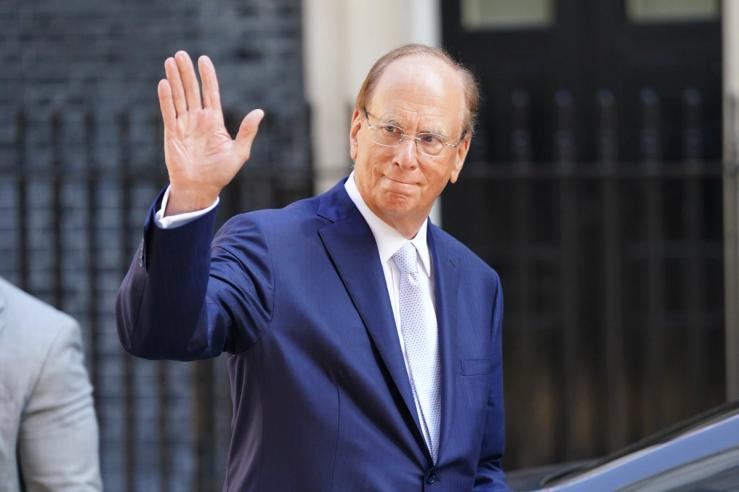The News
BlackRock, the world’s largest asset manager, is back in business in Texas after the state removed it from a blacklist of financial firms that Republican officials deemed to be prejudiced against the oil and gas industry.
The decision is a victory for Republican state officials around the US, who have argued that the ESG policies of firms like BlackRock have led them to put so-called woke politics ahead of their fiduciary duty. But it’s an even bigger victory for BlackRock, which proved capable of navigating a high-profile political storm without making too many costly compromises to its core practices and offerings.
The firm can return to managing $300 billion in pensions and other public assets in Texas, comptroller Glenn Hegar said, because it “has acknowledged the real social and economic costs, both here in Texas and globally, that come from limiting investment in the oil and gas industry.”
“A lot of this was about gamesmanship,” said Shivaram Rajgopal, a finance professor at Columbia Business School. “Both parties did what they needed to so that one side can declare victory and the other can get back to business.”
In this article:
Tim’s view
BlackRock’s response to the ESG backlash looks like an expert case of “greenhushing,” the trend in which companies downplay their climate actions to avoid negative scrutiny without scrapping them altogether. Before many of his peers, CEO Larry Fink managed to read the writing on the wall that climate-conscious investing was falling out of political fashion. Whereas his 2020 letter to shareholders expounded on the theme that “climate risk is investment risk,” by this year his focus had shifted to “energy pragmatism” and the scramble to build as much new energy capacity as possible. The firm also dropped out of two prominent net zero groups, membership in which was among the main reasons it was targeted in Texas.
BlackRock’s experience shows that for Wall Street, the upside of publicly supporting climate action is far outweighed by the political risk, even though its Texas business was scarcely a drop in its $12 trillion total portfolio. And it shows that the same kind of kowtowing to Trump-ist ideology that recently brought a firestorm of criticism onto several white-shoe law firms can go down more smoothly if done gradually, instead of overnight. A BlackRock spokesperson didn’t return a request for comment.
But it also shows that Texas officials were fairly easy to placate. BlackRock still employs more than 700 “global sustainable and transition specialists.” It still offers at least 305 ESG-labeled funds, of which 81% include some level of exclusion of fossil fuel companies, according to Morningstar Sustainalytics. And its $12.5 billion acquisition last year of the private equity firm Global Infrastructure Partners was largely a play for energy transition-related profits: “If we are going to decarbonize the world… that creates compelling investment opportunities for our clients,” Fink said in announcing the GIP deal. It’s clear that, outside of Texas at least, many of BlackRock’s biggest customers are still hankering for climate-savvy investment guidance; a survey of 25 large global pensions and other asset owners this week by Morningstar found that most still view climate change as a major risk factor.
Meanwhile, Texas officials found that scoring points against liberals isn’t cheap. Investors go to BlackRock for a reason, and blacklisting the firm likely does more damage to returns than any fossil-free investment strategy. One Texas pension manager warned that the state’s blacklist policy could cost up to $6 billion in missed returns over the next decade. A separate 2022 study by the Wharton School of Business found that Texas’s decision to force out several top banks as underwriters for municipal bonds, because of their ESG policies, likely incurred more than $500 million in higher interest payments.
Still, BlackRock isn’t entirely out of the Texas woods yet: It is still battling a lawsuit from the state’s attorney general alleging that BlackRock and its main competitors, State Street and Vanguard, illegally conspired to drive down coal production, which BlackRock has called “absurd.”
Room for Disagreement
One area in which BlackRock’s ESG walkback is more substantive than rhetorical is on climate-related shareholder resolutions, said Ben Cushing, sustainable finance director at the Sierra Club. The firm voted in favor of just 4% of ESG resolutions in 2024, a record low. That sacrifices a vital opportunity to pressure high-carbon companies in which BlackRock is invested — which is just about all of them — to clean up their act.
As for Texas officials, their success in pressuring financial firms has not been replicated when it comes to blocking the rollout of clean energy in the state. Multiple bills designed to impede renewable energy projects or force them to build gas generation on the side failed this week to pass the state legislature.
Notable
- Meanwhile, in the UK, former Bank of England staff say the bank routinely ignores or downplays climate risk, leaving the country’s financial sector vulnerable to huge future losses.
Correction
A previous version of this story misstated the dollar value of Texas pension funds’ assets.


